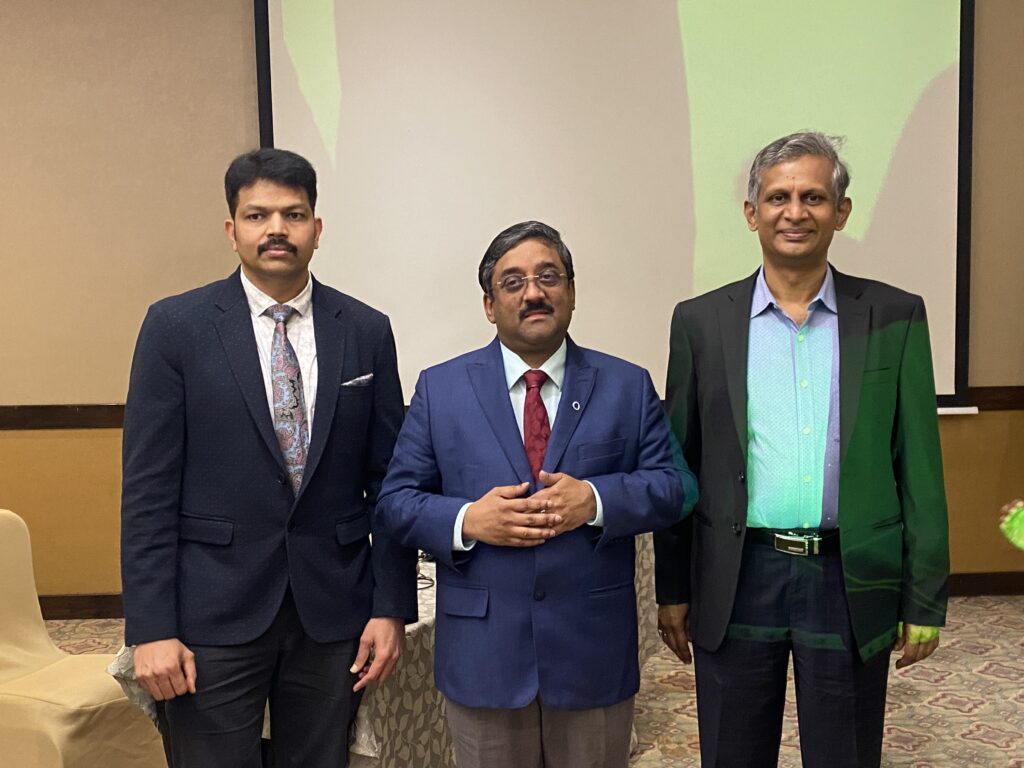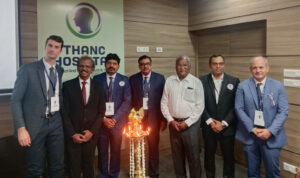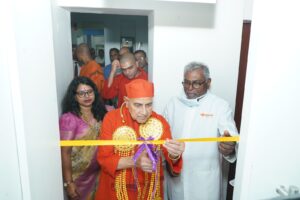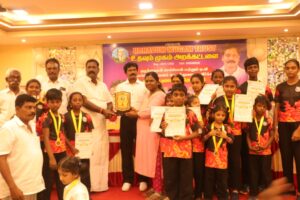MV Hospital for Diabetes awarded at the 18th European Diabetic Foot Study Group

Chennai, 09 November 2022: M. V. Hospital for Diabetes Royapuram Chennai today announced that they were awarded the Second Prize at the 18th European Diabetic Foot Study Group [DFSG] meeting in Bratislava, Slovakia held on September 16-18, 2022.
The DFSG which is the largest meeting of Diabetic Foot in Europe saw the participation of Diabetic Foot Experts from all over Europe.
On the occasion, M. V. Hospital for Diabetes and Prof. M. Viswanathan Diabetes Research Centre, Royapuram Chennai presented a research paper on “Improving blood flow and saving the legs of people with Diabetes”.
Presenting on the occasion Dr. Vijay Viswanathan, Head, and Chief Diabetologist, M. V. Hospital stated, “In a study of 130 people who had undergone angiography at the M. V. Hospital for Diabetes Royapuram, 89 people had outcome data [Mean age of the patients: 63.8 ± 8.6 years and the mean duration of Diabetes 16.1 ± 8.8 years. All the 89 patients had Diabetic Foot wounds with less blood circulation in the legs and feet [PAD: Peripheral Arterial disease].
Among the people who underwent angioplasty in 76.3 % of people a major amputation was avoided [Below knee or Above Knee amputation is considered a major amputation] and 23.7 % of patients had to undergo a major amputation in spite of the angioplasty, due to the fact that they came late to the hospital with severe Diabetic Foot infection. “
Dr. Vijay Viswantahan mentioned that we were able to prevent a major amputation in most of the patients who had PAD and Diabetic Foot Infection and were treated by angioplasty.
Dr. R. Ravikumar, Interventional Radiologist, M. V. Hospital during the occasion said, “ Wound blush is the key element in a successful angioplasty procedure. Anyone with a good wound blush after angioplasty can be almost assured that the wound will heal.”
Dr. G. Senthil, Consultant Diabetic Foot Surgeon at the M. V. Hospital for Diabetes Royapuram said, “In many people with Diabetic Foot Infection the pulsations in the feet are not palpable which shows they have PAD. Such people have a high risk of major amputation. By doing an Angioplasty, it is possible to save the legs of such people and they need the removal of the gangrene toes [Minor amputation] and we can prevent a major amputation if the infection is not severe.”






